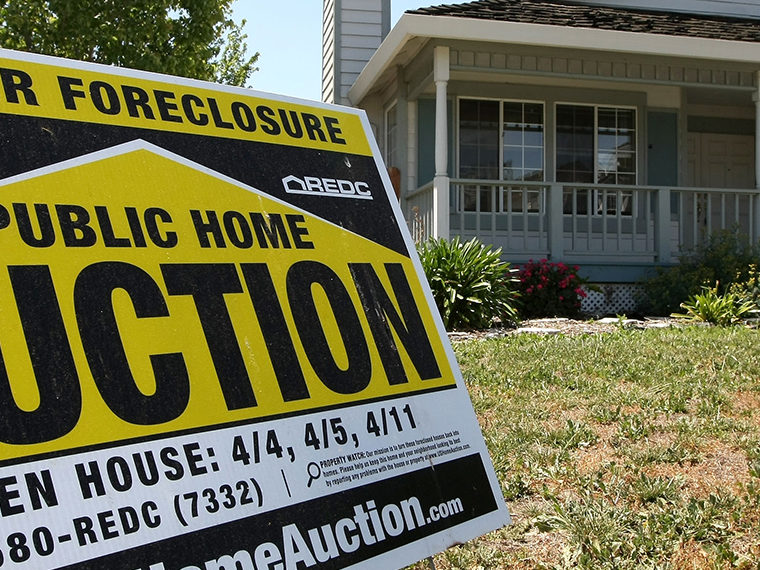Researchers developed an index that warns earlier than others about approaching home loan problems
An index that tracks the number of Google searches for “foreclosure help” or “mortgage assistance” is a timelier gauge of default risk in the mortgage market than indicators typically used for forecasting, according to research published by the University of California Riverside’s Marcelle Chauvet, UCLA Anderson’s Stuart Gabriel and Copenhagen Business School’s Chandler Lutz.
The Mortgage Default Risk Index (MDRI), which the researchers built by aggregating Google search phrases that suggest homeowner distress, correctly predicts rises in mortgage defaults before standard indicators hint at trouble ahead, according to the findings published in the Journal of Urban Economics. The index, the study concludes, acts as a leading indicator to the most up-to-date measures of housing markets in use today.
Using Google Trends, the researchers tabulated 11 household search queries that included a housing and home loan keyword, such as “mortgage” or “foreclosure,” paired with “help” or “assistance.” (Google Trends is a public tool that ranks the popularity, over any given period of time, of any search term or phrase entered.) The MDRI moves up as the number of searches for these terms rises.
Opt In to the Review Monthly Email Update.
The index currently suggests little near-term risk in the mortgage market, with its default reading at an all-time low.
The study finds that the MDRI rises long before market weakness becomes visible in the most closely watched indicators of housing and mortgage markets. For example, the MDRI began showing weakness in the housing markets in mid-2006, more than a year before ABX indices started an extended depression in October 2007. ABX indices track the cost of credit-default swaps on subprime mortgage backed securities, and their downturns serve as warnings to investors that borrower defaults are expected to rise in the future.
MDRI increases preceded both the rise in 60-day delinquencies and decreases in actual housing prices, according to the findings. Upward index trends also preceded bearish responses on the University of Michigan’s monthly Index of Consumer Sentiment. After the index rose, more respondents indicated that the future was too uncertain, or their finances too limited, to buy a house.
Unlike other market indicators, Google searches may reveal a key trigger for mortgage default almost as it happens. Research shows that shrinking equity in a home leads to a higher risk of mortgage default, but home owners typically keep paying their loans unless the payer loses a job or other income. While analysts can see overall unemployment rates, and they can deduce negative equity when home sale prices fall, they cannot identify in real time where these risk raisers happen concurrently.
The authors suggest that the Google search for mortgage help signals that a trigger event has occurred: something has happened that lessens the home owner’s ability to pay the mortgage, and the house isn’t worth enough to get an adequate price in a sale.The authors note several factors that may make internet search data more predictive for mortgage market forecasting than traditional tools. The phrases the MDRI comprises are common search terms, giving researchers sample sizes hundreds of times larger than the typical survey. Although not every search is by a borrower seeking help with a mortgage, the findings suggest that many millions of them are.
Featured Faculty
-
Stuart Gabriel
Arden Realty Chair; Distinguished Professor of Finance; Director, Richard S. Ziman Center for Real Estate at UCLA
About the Research
Chauvet, M., Gabriel S., & Lutz, C. (2016). Mortgage default risk: New evidence from internet search queries. Journal of Urban Economics, 96, 91–111. doi: 10.1016/j.jue.2016.08.004
The UCLA Ziman Center for Real Estate, a joint project of UCLA Anderson and UCLA School of Law, publishes a summary of the MDRI quarterly.
Also available are links to downloaded data from the index.





